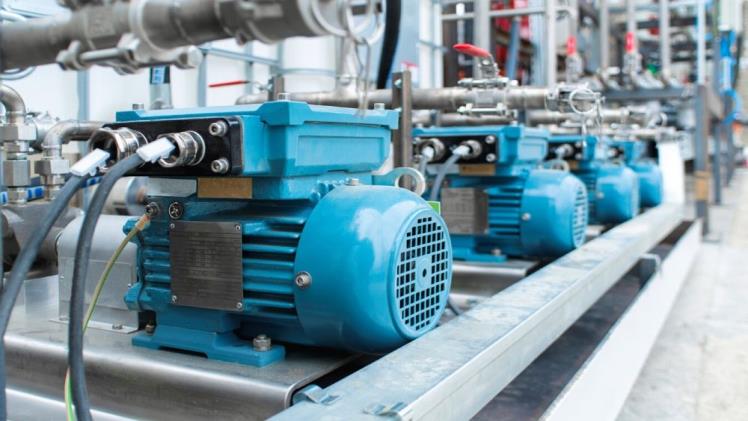When it comes to powering machinery, selecting the right motor for your application is a crucial decision. There are two main types of motors: AC and DC. Each type has its own advantages and disadvantages that need to be considered when making a purchasing decision.
This article will provide an overview of both AC and DC motors and discuss their key benefits and drawbacks in order to help you choose the best motor for your needs.
What is the difference between AC Motors and DC Motors?
AC Motors
AC (alternating current) motors are widely used in industrial settings due to their high efficiency, low cost, wide availability, and ease of use. They rely on alternating current (AC) electrical power which can vary in voltage depending on the application requirements.
Commonly used in pumps and compressors, AC motors are often used to power high-load machinery such as elevators, conveyor belts, or industrial robots.
One of the major advantages of AC motors is their efficiency; they can operate at 90% or higher efficiency levels with minimal power loss. Additionally, they are relatively easy to maintain and repair due to their simple construction compared to more complex DC designs.
However, one drawback of AC motors is that they cannot be controlled as precisely as DC models; if a certain speed needs to be maintained for an application, then a variable frequency drive (VFD) must be used.
DC Motors
DC (direct current) motors are typically smaller than AC models and are used in applications that require precise speed control such as electric vehicles or robotics. DC motors rely on direct current (DC) electrical power and can be used with a wide range of voltages.
One of the major advantages of DC motors is their precision; they can be precisely controlled via speed controllers which allow for much finer control than AC motors. Additionally, DC motors tend to have higher torque ratings than AC models which makes them ideal for heavy-duty tasks.
A disadvantage of DC motors, however, is their cost; they are typically more expensive than equivalent AC models due to the complexity of the design and manufacturing process.
Additionally, they can suffer from higher maintenance costs compared to AC models since the components may not be as easy to repair.
AC Motors vs. DC Motors: So Which One is Better?
The answer to this question is not straightforward; both AC and DC motors have their own benefits and drawbacks depending on the application.
In general, AC motors are a good choice for applications that require high efficiency and affordability. On the other hand, DC motors are ideal for tasks that require precise speed control such as electric vehicles or robotics.
Ultimately, the best motor for your application will depend on your specific needs and requirements.
Before making a purchasing decision, it is important to consider all of your options carefully in order to ensure you select the most suitable motor for your project.
Conclusion
In conclusion, when choosing the right motor for your application, it is important to consider both AC and DC motors.
While AC motors offer high efficiency and low cost, they require variable frequency drives to achieve precise speed control. Alternatively, DC motors provide greater precision but may be more costly in terms of initial outlay and maintenance costs.
Ultimately, the best motor for your application will depend on your specific needs and requirements. It is important to assess all of your options carefully in order to ensure that you pick the most suitable motor for your project.


